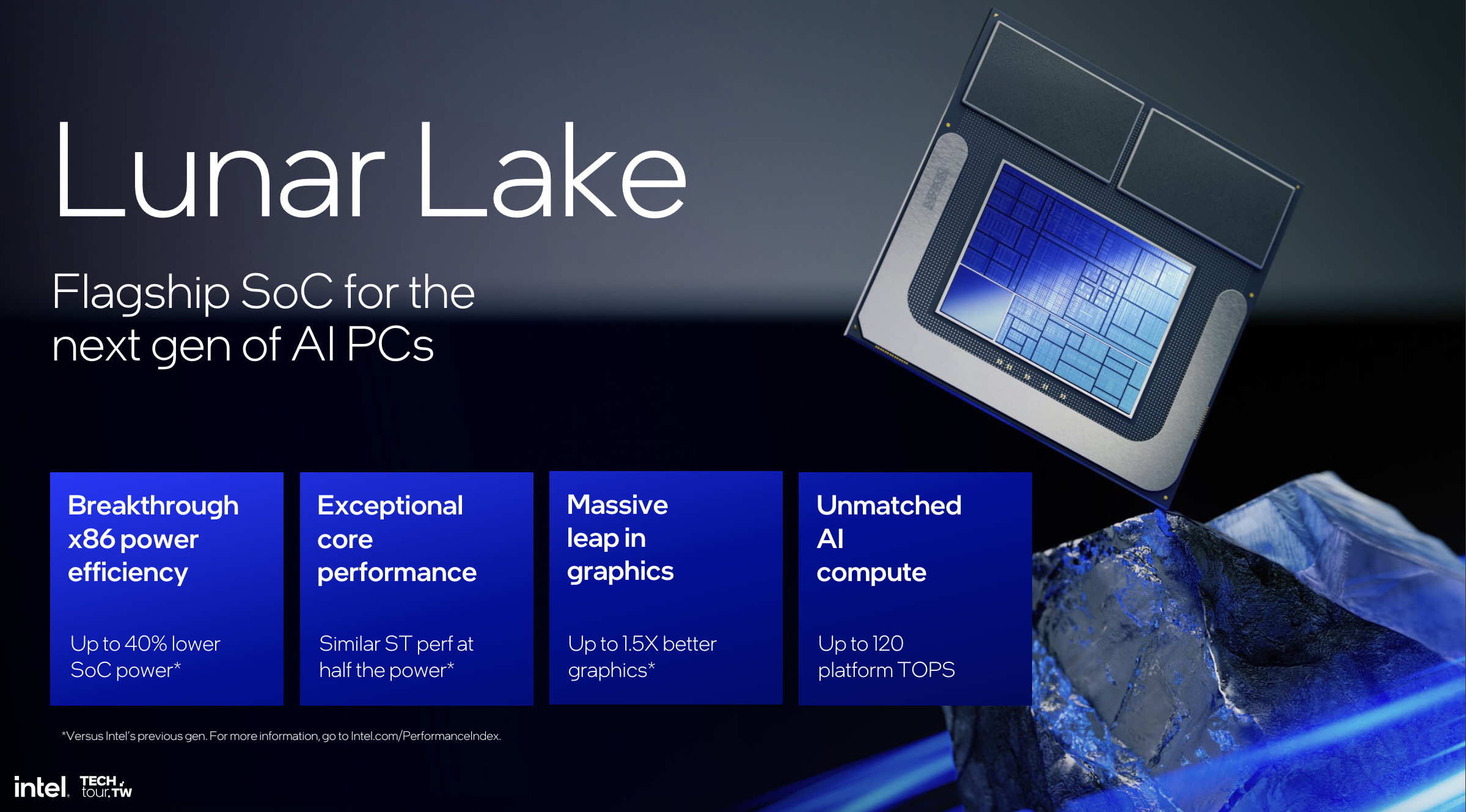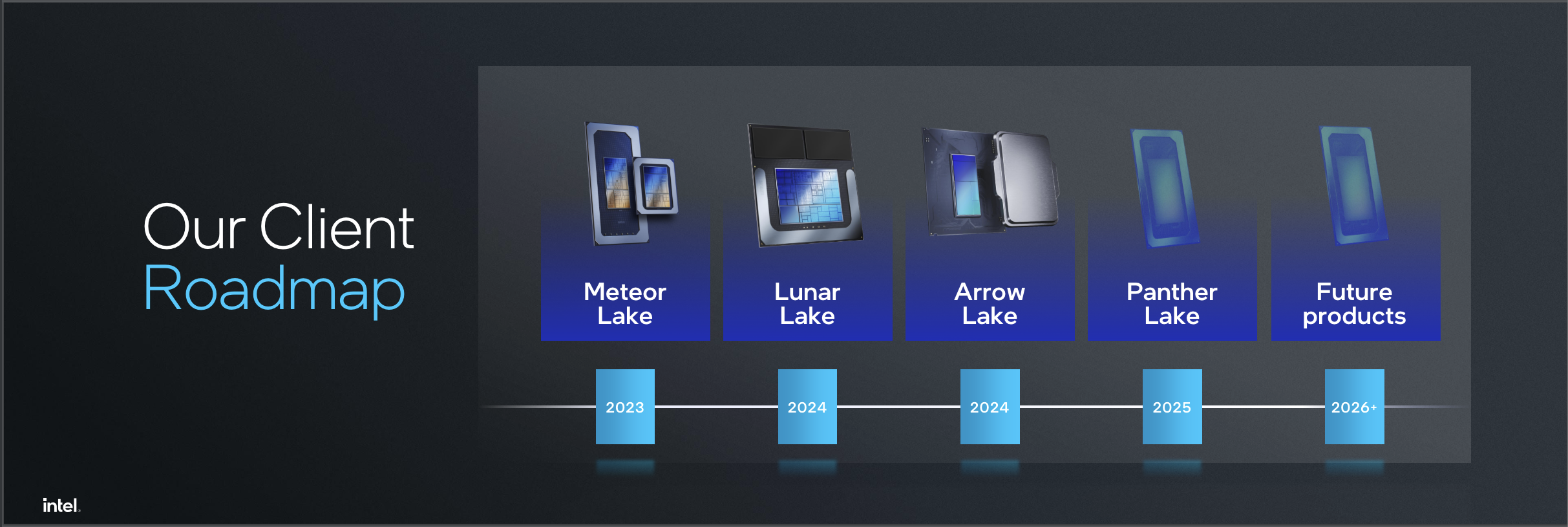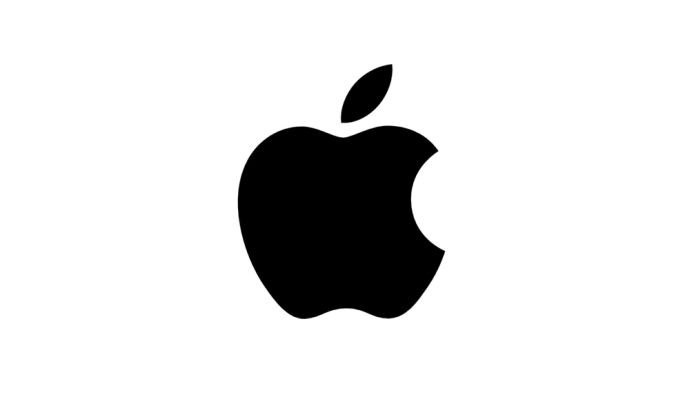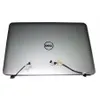Intel CEO on Nvidia's Jensen Huang: 'Moore's law is alive and well' and here's the AI chip to prove it
Intel outdoes itself and others at Computex 2024
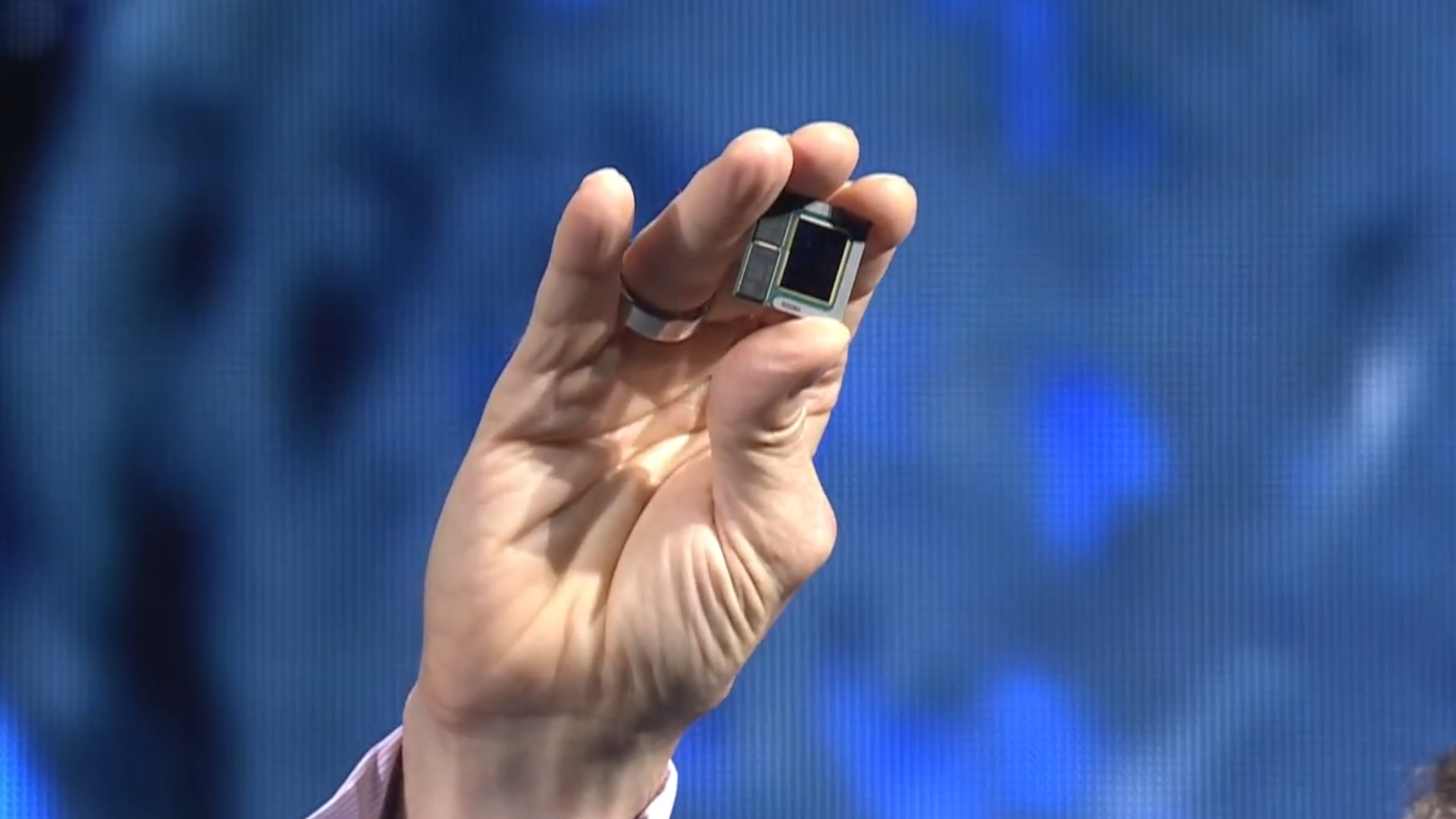
Sign up to receive The Snapshot, a free special dispatch from Laptop Mag, in your inbox.
You are now subscribed
Your newsletter sign-up was successful
Late last night, and mid-way through the day on the other side of the world in Taipei, Taiwan, CEO Pat Gelsinger took to the stage to make Intel's presence known during Computex 2024.
Gelsinger's keynote showcased the next generation of Intel's products, including client and data center computing chips, with the company's upcoming Lunar Lake processors claiming much of the spotlight.
However, this wasn't only a platform for Intel to reveal its latest accomplishments to the tech world, Gelsinger also took the opportunity to add to a years-long back and forth with another industry figurehead.
Moore's Law: Alive and well?
Intel's keynote opened with an AI recreation of co-founder Gordon Moore repeating one of his more well-known statements: "Whatever has been done can be outdone." It's a battle-cry for Intel in its quest for microchip mastery, but it also lends well to another of its co-founder's observations, commonly known as Moore's Law.
Moore's Law predicts that the number of transistors in an integrated circuit doubles about every two years, and it's been a prediction that has driven the semiconductor industry's targets for decades. However, that kind of progress isn't always sustainable, and experts have indicated that the pace has slowed if not stopped altogether in recent years. This has led some to believe that Moore's Law is dead — with Nvidia CEO Jensen Huang being a vocal proponent of that notion.
Huang's thoughts on Moore's Law are antithetical to current Intel CEO Pat Gelsinger, and the two have publicly exchanged their opinions over the last few years. However, Intel's Computex Keynote wasted no time in reasserting the accuracy of its co-founder's predictions.
Pointing back to 1981's Intel 80286 reveal, a 16-bit microprocessor housing 100K transistors, Gelsinger then highlighted how modern chips seek to feature a billion transistors, with that number estimated to reach a trillion by the end of the decade.
Sign up to receive The Snapshot, a free special dispatch from Laptop Mag, in your inbox.
"Unlike what Jensen might have you believe, Moore's Law is alive and well" stated Gelsinger — and it helps that he brought the chip that aids his argument on stage with him.
Lunar Lake: Intel's next-gen Core Ultra chips
After extolling the success of Intel's current Meteor Lake chipsets, something Microsoft CEO Satya Nadella would also do via pre-recorded video, Gelsinger got straight to the point of unveiling Intel's new flagship Lunar Lake, Core Ultra chips fabricated in collaboration with TSMC.
Gelsinger praises Lunar Lake for both its "Revolutionary design," and "its new IP blocks for CPU, GPU, and NPU." Expectations are high for Intel's next-gen AI PC processor, with Gelsinger stating that "It'll power the largest number of next-gen AI PCs in the industry" stating that Intel already has "Over 80 designs with 20 OEMs" that will begin shipping in volume from Q3, 2024.
Intel's next-gen SoC offers up to 40 percent lower SoC power, up to 50 percent better graphical performance over Meteor Lake, and up to 120 TOPS of AI compute spread across NPU, GPU, and CPU. Lunar Lake offers up to 48 TOPS of compute through its upgraded NPU alone, overtaking the current Copilot+ PC favorite chipset, Qualcomm's Snapdragon X Elite and falling only marginally short of AMD's recently announced Ryzen AI 300 Series.
Intel chipsets: Looking ahead
Swinging back to the comments of Intel's co-founder earlier in the keynote, with the reveal of the new Lunar Lake chips now done, the company is setting out to outdo it.
Intel is the company that's looking to ship its second generation of AI PC chips before most have the chance to get their first out of the gates — and they're far from done, revealing their excitement to reveal its Arrow Lake processors, which will bring the AI PC category to desktops for the first time, later in the year.
Intel's plans for 2025? In Gelsinger's own words, "It just gets better with Panther Lake." Panther Lake is the company's next processor project and the third generation of its Core Ultra chiplet-based redesign, produced with its 18A process technologies.
"18a brings process leadership back to Intel, where it belongs" claims Gelsinger, suggesting that the company will be able to retake the lead from TSMC in the production of semiconductor chips.
Gelsinger's Panther Lake claims are bold and exciting, but we'll have to wait until next year's Computex event to get the full scoop.
More from Laptop Mag
- In a stunning debut, Intel claims 3x better AI performance for its new Lunar Lake chips
- Qualcomm leans heavily into the future of AI at Computex keynote
- MSI upgrades the Stealth and Creator laptops with AMD Strix Point and Intel Core Ultra AI processors

Rael Hornby, potentially influenced by far too many LucasArts titles at an early age, once thought he’d grow up to be a mighty pirate. However, after several interventions with close friends and family members, you’re now much more likely to see his name attached to the bylines of tech articles. While not maintaining a double life as an aspiring writer by day and indie game dev by night, you’ll find him sat in a corner somewhere muttering to himself about microtransactions or hunting down promising indie games on Twitter.

